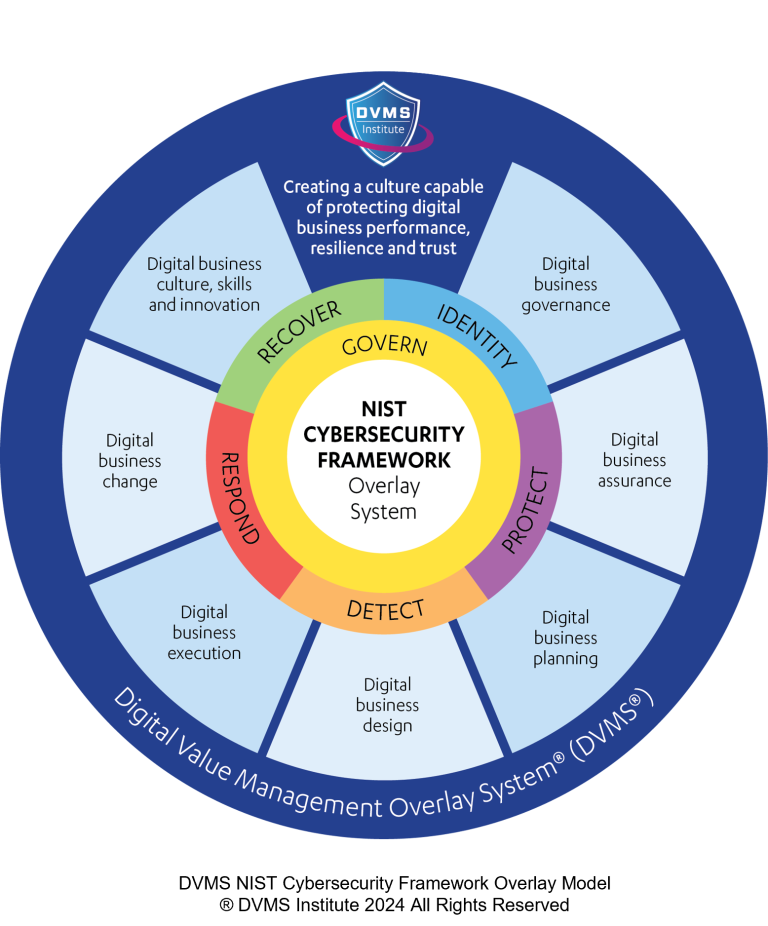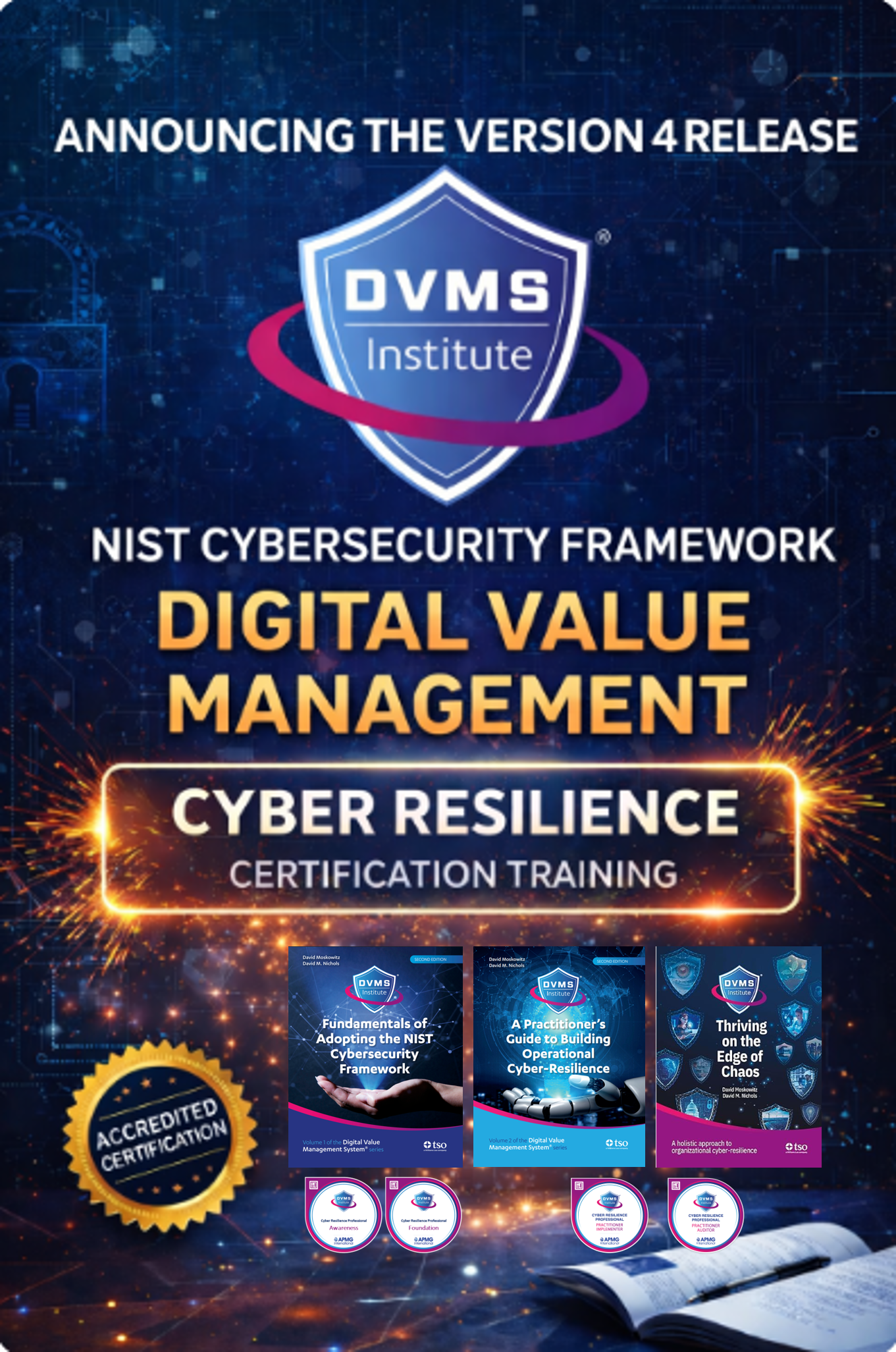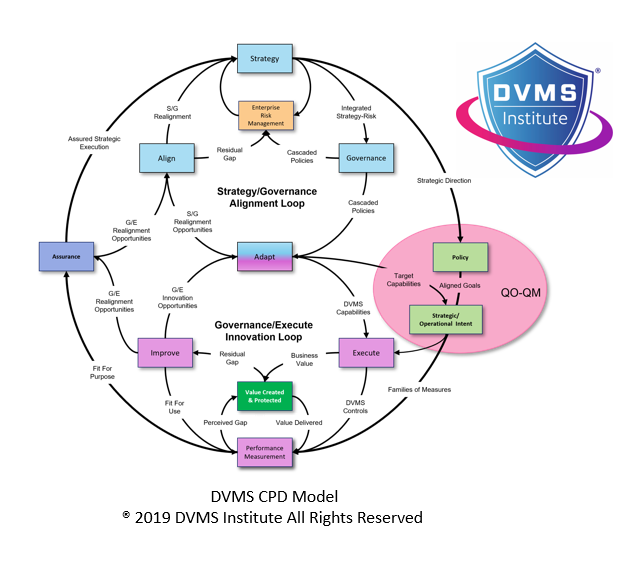Why Small Businesses Need an IT/Cybersecurity Risk Management Professional on Their Staff
Rick Lemieux – Co-Founder and Chief Product Officer of the DVMS Institute
In today’s digital age, small businesses increasingly rely on technology to operate effectively. From customer information to financial data, these businesses handle sensitive information essential to their success. However, this reliance on technology exposes them to various cybersecurity threats that could have devastating consequences. Therefore, small businesses must prioritize both the protection of their data and their business resiliency.
Data protection is essential for several reasons. First, it helps to maintain customer trust. In an era where data breaches are commonplace, customers expect businesses to take their privacy seriously. A data breach can damage a small business’s reputation and lead to a loss of customers.
Second, data protection is necessary to comply with regulatory requirements. Many industries have specific data protection laws, such as the General Data Protection Regulation (GDPR) in the European Union and the California Consumer Privacy Act (CCPA) in the United States. Failure to comply with these regulations can result in hefty fines and legal penalties.
Finally, data protection is crucial for protecting a business’s intellectual property. Sensitive information, such as trade secrets and proprietary data, can be an asset to a small business. If this information is compromised, it could lead to financial loss and competitive disadvantage.
Business resiliency is also essential for several reasons. Business resiliency refers to a business’s ability to continue operating in the face of disruptions, such as natural disasters, cyberattacks, or other unforeseen events. By investing in business resiliency, small businesses can minimize the impact of disruptions and ensure their continued viability.
Building an SMB Data Protection and Business Resiliency Program
Small businesses can implement several strategies to protect their data and enhance resiliency. One crucial step is to conduct a thorough risk assessment. This involves identifying potential threats and vulnerabilities and evaluating the potential impact of a data breach or disruption. Businesses can prioritize their security measures and allocate resources based on the risk assessment results.
Another essential strategy is to implement robust security controls. This includes strong passwords, firewalls, antivirus software, and regular security updates. Additionally, businesses should consider implementing a backup and recovery plan to ensure that they can quickly restore their data and systems during a disaster.
Employee training is also critical for data protection and business resiliency. Employees should be educated about best practices for cybersecurity, including how to recognize and avoid phishing scams, strong password management, and data handling procedures. Regular training can help raise awareness of security risks and ensure employees are equipped to protect sensitive information.
Furthermore, small businesses should consider investing in cybersecurity insurance. This can provide financial protection in a data breach or other security incident. While insurance cannot prevent breaches, it can help to mitigate the economic impact and facilitate recovery.
Data protection and business resiliency are essential for small businesses’ success. By prioritizing these areas, companies can protect their sensitive information, maintain customer trust, comply with regulatory requirements, and ensure their continued viability in the face of disruptions. Small businesses can mitigate risks and build a more resilient organization by implementing robust security measures, employee training, and backup and recovery plans.
College graduates and existing employees with relevant degrees are ideally suited to fill this role, bringing the necessary technical skills, fresh perspective, and work ethic to protect small business performance, resilience, and client trust.

Rick Lemieux
Co-Founder and Chief Product Officer of the DVMS Institute
The DVMS Institute teaches organizations of any size, scale, or complexity an affordable approach to mitigating cyber risk to protect digital business performance, resilience, and trust.
Rick has 40+ years of passion and experience creating solutions to give organizations a competitive edge in their service markets. In 2015, Rick was identified as one of the top five IT Entrepreneurs in the State of Rhode Island by the TECH 10 awards for developing innovative training and mentoring solutions for boards, senior executives, and operational stakeholders.
® DVMS Institute 2024 All Rights Reserved




